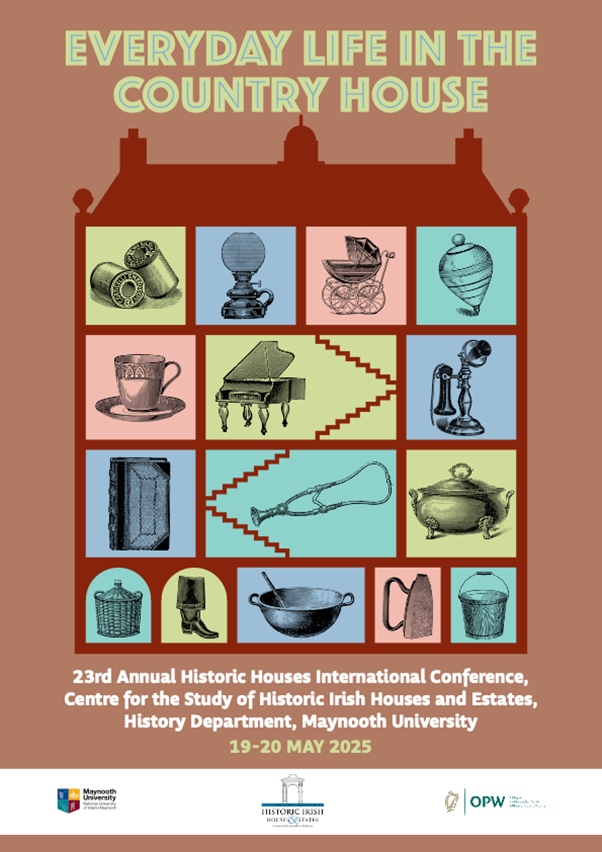
Report by our Alumna Dr Lucy Moreau reports on her attendance at the the 23rd Annual Historic Houses International Conference at the Centre for the Study of Historic Irish Houses and Estates, History Department, Maynooth University, Co. Kildare.
Or …What I Learned About Irish Country Houses (Spoiler: It Wasn't Like Downton).
So I spent a few days at Maynooth University pretending to be a proper academic at the Historic Houses International Conference. The theme? "Everyday Life in the Country House." I went in expecting tales of elegant dinner parties and swooning over four-poster beds. What I got instead was a masterclass in why you should never romanticise the past.
Firstly a reality check …
Turns out those Instagram-worthy country houses were basically expensive prisons where everyone was either plotting, stealing, or having nervous breakdowns. Professor Terence Dooley kicked things off by comparing these places to "machines for living" – though I'd argue they were more like expensive Airbnbs where half the guests were plotting murder and the other half were embezzling the silver.
The opening paper literally asked "And who is to look after the horses, eh?" which immediately brought everyone down to earth. Forget the glamour – someone had to muck out those stables, and it wasn't Lady Grantham.
Then onto crime, scandal, and mental health crises
Adrian Tinniswood's talk on crime in country houses was basically "CSI: Georgian Ireland." Apparently these places were magnets for theft, both from sneaky outsiders and light-fingered staff. Note to self: never trust anyone in livery.
But the real shocker was Georgina Laragy's paper on suicide in Irish country houses. Suddenly all those mysterious deaths in period dramas feel a lot less mysterious and a lot more heartbreaking. Mental health wasn't exactly a priority when your main medical treatment was take some laudanum and lie down.
The most eye-opening session was about the women nobody talks about – not the glamorous lady of the house, but her unmarried sisters and poor relations. Meinir Moncrieffe's research revealed this whole underclass of apparently genteel women who were basically live-in companions with fancy titles. They got bed and board but zero security and even less respect. Think Miss Bates from Emma, but in real life and probably more depressed.
Emma Arthur's paper on music books was surprisingly moving – these women used music as their escape, their form of rebellion, their way of staying sane in a world that had no real place for them.
It turns out that technology was not always an upgrade …
My favourite moment was learning about early electricity installations going spectacularly wrong. Jeremy Hill's talk about "light-bulb moments" at Monksgrange suggested that wiring a medieval castle for modern conveniences was about as successful as you'd expect. I'm imagining a lot of singed eyebrows and hastily blown-out candles.
By the end of the week, I was thoroughly cured of any Somerville and Ross fantasies. These houses weren't monuments to gracious living – they were complex, messy, often dysfunctional communities where privilege came with its own special brand of misery.
But that's what made this conference so brilliant. Instead of more tourist-board chat about heritage and elegance, we got the real story: flawed humans trying to navigate impossible social structures while worrying about money, dealing with difficult staff, and occasionally having spectacular mental breakdowns.
Much more interesting than any period drama, honestly.